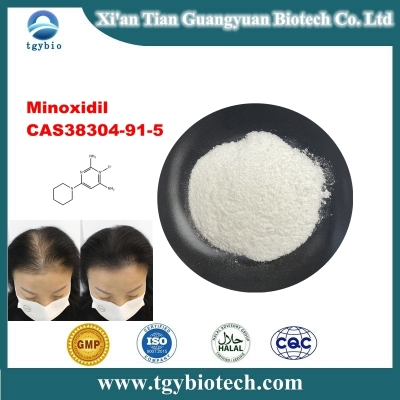-
Categories
-
Pharmaceutical Intermediates
-
Active Pharmaceutical Ingredients
-
Food Additives
- Industrial Coatings
- Agrochemicals
- Dyes and Pigments
- Surfactant
- Flavors and Fragrances
- Chemical Reagents
- Catalyst and Auxiliary
- Natural Products
- Inorganic Chemistry
-
Organic Chemistry
-
Biochemical Engineering
- Analytical Chemistry
-
Cosmetic Ingredient
- Water Treatment Chemical
-
Pharmaceutical Intermediates
Promotion
ECHEMI Mall
Wholesale
Weekly Price
Exhibition
News
-
Trade Service
Nicardipine hydrochloride is a pharmaceutical drug that is primarily used to treat hypertension and angina pectoris.
It belongs to a class of drugs known as calcium channel blockers, which work by relaxing the smooth muscle in the walls of blood vessels, causing them to widen and allowing blood to flow more easily.
Despite its medicinal properties, nicardipine hydrochloride is considered a hazardous substance and must be handled with care in the chemical industry.
When handling nicardipine hydrochloride, it is important to take appropriate safety measures to prevent exposure to the drug.
This can include wearing protective clothing such as gloves and goggles, and handling the drug in a well-ventilated area.
Additionally, it is important to follow proper storage procedures to prevent the drug from coming into contact with other chemicals, which can lead to dangerous reactions.
One of the primary concerns with nicardipine hydrochloride is its potential for causing serious side effects when taken in high doses or when used for extended periods of time.
These side effects can include drowsiness, dizziness, and decreased blood pressure, which can lead to fainting or even heart attack.
It is also possible for the drug to interact with other medications, leading to serious complications.
In addition to the risks associated with using nicardipine hydrochloride, there is also concern about the potential for environmental pollution.
Because the drug is not fully metabolized by the body, it can be excreted in the urine and end up in waterways and soil.
This can have a negative impact on the environment and potentially harm wildlife.
To minimize the risk of exposure and environmental pollution, it is important for chemical companies to adhere to strict safety protocols when handling nicardipine hydrochloride.
This can include proper storage and disposal of the drug, as well asregular monitoring of water and soil samples to ensure that levels of the drug are not exceeding safe limits.
In conclusion, nicardipine hydrochloride is a powerful pharmaceutical drug that is used to treat hypertension and angina pectoris.
However, it is also a hazardous substance that must be handled with care in the chemical industry.
Proper safety measures and strict adherence to safety protocols are essential to prevent exposure and protect the environment from the potential harm caused by this drug.







